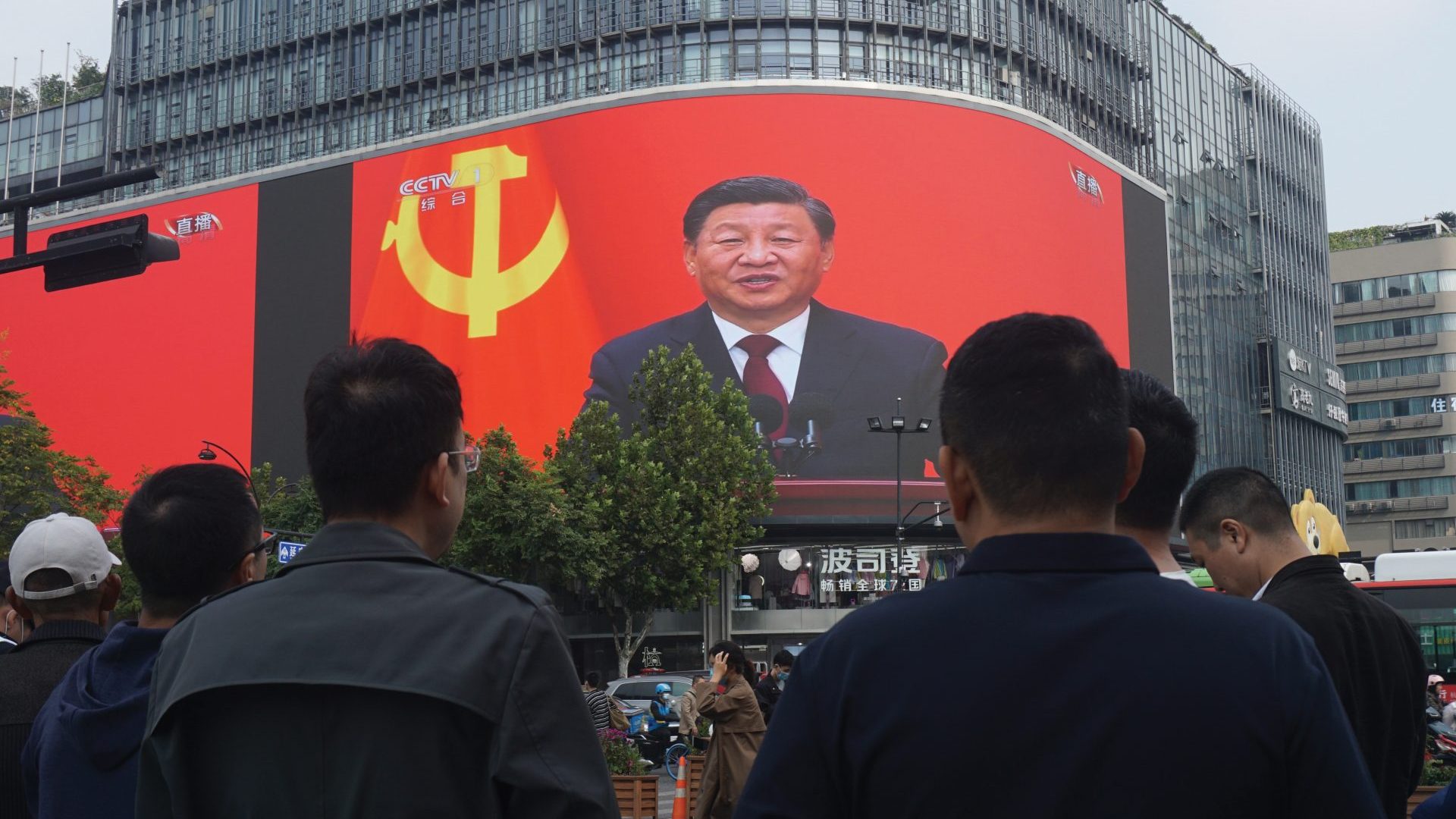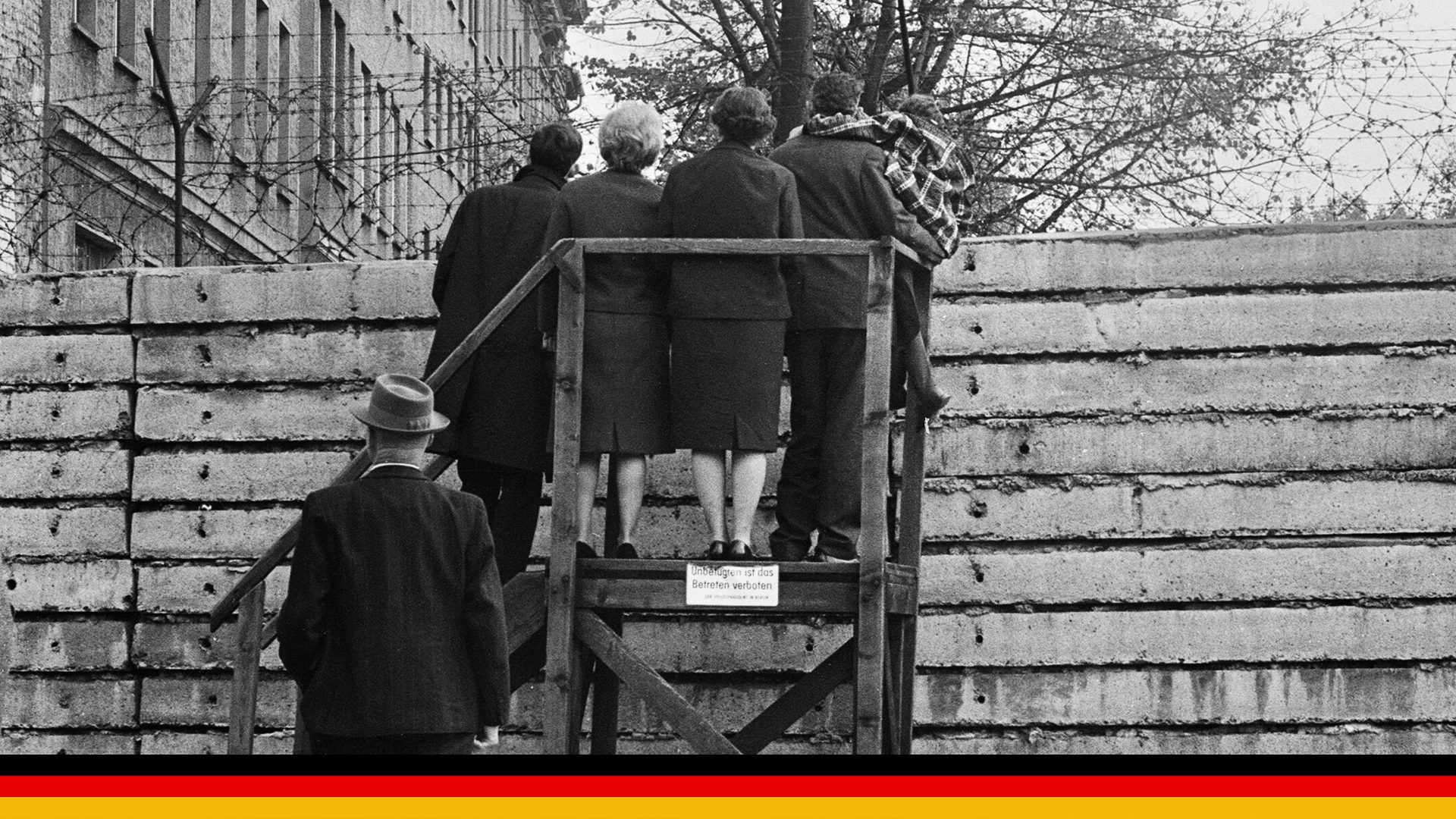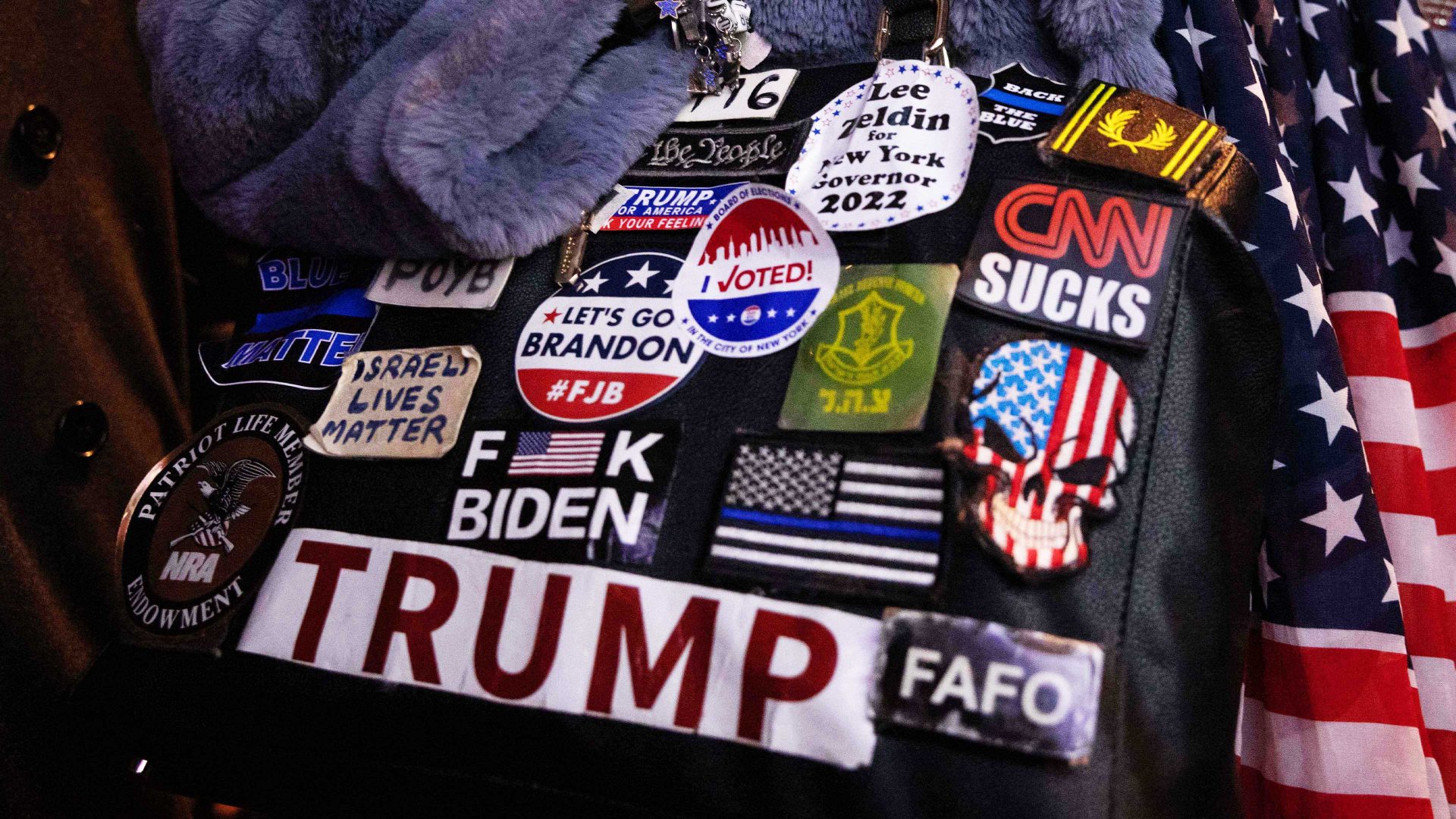There are rules to commenting on foreign affairs, it seems – some of them so obscure as to be unknowable. When discussing China and its international relations, it seems obligatory to say that they stand “on a precipice”.
This was the phrase used by the US elder statesman – if that’s the term – Henry Kissinger as well as John Kerry, hardly his ideological bedfellow. It has lasted for decades, and serves as a way of saying something that sounds sharp and profound while actually functioning as the ultimate way of hedging one’s bets.
If relations sharply decline – well, you did say “precipice”. Should they markedly improve, you can flag that they have “turned back from the precipice” – and if they remain largely the same you just nod sagaciously and say that they remain “standing at the precipice”. It’s a one-take-fits-all solution.
Or at least it has been. Even from the great distance of thousands of miles across the world, it is increasingly clear that China has already leapt from the precipice. The big remaining question is why some democratic leaders seem determined, like the lemmings of myth (real lemmings don’t do this), to jump straight after him.
Much of the attention on China in recent weeks has focused on Xi Jinping’s successful attempt to secure an unprecedented (in recent times) third term as China’s leader, appearing in effect to grant him the role of president-for-life.
This has been accompanied by a thorough and unflinching purge from the Chinese Communist Party’s top ranks of his few remaining rivals, along with several potential challengers. Even Xi’s immediate predecessor, Hu Jintao, was unceremoniously escorted away from the party gathering – in full view of television cameras – after an apparent disagreement with Xi. No full explanation has been offered.
As is so often the case with autocratic rulers entering their second decade in power, Xi has successfully purged his court of dissenting voices – and China has for decades brutally suppressed dissent across the country.
Student protests in Tiananmen Square were violently put down decades ago – but this seems almost small beer compared with Xi’s willingness to shape China in his desired image. Let us not forget that it is Xi’s China that has interred millions of Uighurs in Xinjiang province, in a bid for forced cultural and religious conversion of which even the Spanish Inquisition would never have dreamed. Xi has ended Hong Kong’s historic freedoms, too.
When Xi speaks of “One China” he is not merely referring to the Chinese Communist Party’s longstanding position that Taiwan is part of China, but also of his desire to homogenise the vast country over which he rules. What’s more, he seems willing to value control at almost any price.
For years there has been a tacit deal between China’s ruling class and, if not all of those it rules over, at least the aspiring middle class that might one day challenge it. In exchange for giving up what we in the West regard as essential freedoms, there shall come prosperity: university education and middle-class jobs for your children, technological development, and the rise of new mega-cities.
For years that bargain – if a deal entered into unwillingly can be referred to as such – has held. China has grown like nothing before it: new cities have sprung up from nowhere, manufacturing has advanced from simple, low-quality goods to some of the most sophisticated in the world. There is a prosperous, property-owning middle class.
The problem Xi faces – or more accurately, faced, for it is too late now for him to fix it – is that, as Adam Curtis might say, all of that was a fantasy. Or at least much of it was: China’s apparent miracle rested on a property bubble that makes the one in the West look like the merest speck of froth.
In a bid to boost growth, Chinese regional governments were ordered years ago to boost road and infrastructure spending, but they were given little central government cash to do so. They funded this by selling off land to developers in vast amounts.
At first, these were a good investment: lots of Chinese people were moving from the country to the city, and property was in high demand. Such was the demand that it became customary in China to buy property not just off-plan, but five or more years before it would be built.
Payments on the mortgage would start immediately, even though the home didn’t exist yet. For some families buying these homes as their retirement plan, through buy-to-let, this was not much of an issue – but for those intending to live in the home when it was finished, it meant years of painfully paying rent and a mortgage, all in the hope of eventually living as a homeowner and starting a family.
But the property market, fuelled years in advance by a speculative boom and free money, didn’t so much overheat as superheat – particularly in smaller cities. This was so much the case that it created the phenomenon of “ghost cities” – completed blocks with no occupants, sometimes extending to entire cities.
The finances of developers began to look precarious. Families now face the prospect of having paid a mortgage for years on a property that might now never exist. Those who bought properties as their investment – private pensions barely exist for most people in China – face serious losses for their retirement nest egg. The compact is set to fall apart.
All of this is compounded by Xi’s once-hailed but now internationally derided “zero Covid” policy. Cities and even regions of China still face the regular spectre of lockdowns of such severity as to be unimaginable in Europe – with little prospect of change for several years, as China has refused to roll out international vaccines on any large scale, and has struggled to develop an effective jab of its own.
What was once about sensible pandemic prevention has become an exercise in both the sunk cost fallacy – not admitting a mistake in a bid to avoid the flak for making it – and in Xi’s need to demonstrate control over all things. While these unpredictable and unworkable sporadic lockdowns are inflicting economic damage across the world, nowhere is feeling their impact to anything like the extent of China.
When these factors are combined with Xi’s expulsion of those senior Chinese officials who could best persuade western companies and investors that China was a good partner to global businesses, and a good place to do business – in favour of his own hardcore loyalists once again – it is clear that China’s economic miracle has at best stalled, and at worst faces freefall.
Xi would do well to look to the recent fate of his close ally Vladimir Putin, and how the latter so rapidly came to be the junior in their power dynamic. Putin appeared to have total control over both the Kremlin and his country, and used this absolute control to make an audacious move he had been assured would be successful – the invasion of Ukraine.
That catastrophic move showed the weakness of Putin’s approach and destroyed Russia’s air of military infallibility, which had carried on long after the Soviet era, when it was last likely to be remotely true. When you’re an autocrat, total victory and absolute defeat can be much closer than they appear.
If Xi is starting to display some of the same, more dangerous autocratic tendencies for himself and his country as Putin – cults of personality rather than, as with China’s other recent leaders, cults of party – then you would imagine that European leaders would see the dangers.
The current energy crisis – predicted for over a decade by anyone who knew even the slightest bit about Russia or international relations – was compounded by Europe’s continuing reliance on Russia for gas.
Germany in particular was hit hard, with heavy blows to its wider economy even as it dashed to secure enough energy to see it through this winter. We won’t know whether this effort succeeded or not until March. Finally, people started to see German political leaders of almost all parties saying what others had known for decades: Germany had made itself dependent on an autocratic regime, ignored the warning signs, and was now paying the economic (if not moral) price for doing so.
It is no surprise, then, that Olaf Scholz’s subsequent actions drew such widespread dismay from both domestic and international observers – including figures in his own party and those of his coalition partners.
While weaning his country off a dangerously dependent relationship with one autocratic regime – Russia – Scholz decided last week to fill a plane with delegates and fly off to meet the newly reanointed head of another: Xi Jinping.
Lest anyone wonder what was at the top of Scholz’s agenda, the people with whom he packed the plane were all leaders of German industry: senior figures (usually CEOs) from VW, Adidas, Siemens, Bayer, and more. Predictably and rightly Scholz has been accused of simply swapping his country’s dependency on one autocrat for dependency on another, with barely a moment between the two.
Scholz has tried to argue otherwise, but his pleas are somewhat hollow: everyone knows what it means to take your CEOs with you to China. He is hardly alone in being dependent on that economy for his future, either. Elon Musk, still the head of Twitter at the time of writing, has much of his Tesla fortune tied up in the goodwill of China (and thus Xi), too.
What is particularly perplexing is Scholz’s timing. He has chosen to cosy up to Xi just as the wheels come off the wagon of the Chinese economic miracle, and just as Xi visibly shifts from a stern-but-relatively-standard modern Chinese leader to an all-out autocrat. To do so just as your country faces a winter of discontent caused by previous cosying looks positively ostrich-like.
There is virtually no roadmap as to what happens next. Tensions between the US and China have been rising since long before recent events, and Taiwan is a perennial flashpoint. Biden and Xi met recently at the G20 in Bali, their first meeting as leaders of their respective nations. They talked for three and half hours, and a statement released afterwards by the Chinese stated that Beijing was “highly concerned about the current situation in Ukraine”, a point on which both Biden and Xi would surely agree. But on the core issue of Taiwan, they made no progress.
The narrative had been to question how the US would react as China inevitably overtook it as the world’s superpower – and this was on its own a nerve-racking enough scenario. The one that replaces it is anything but relaxing, though. To what lengths will Xi – a man whose ruthlessness has been proven beyond doubt on multiple occasions – go to keep power if his country’s economic growth stalls, or even collapses? The playbook of previous dictators suggests that this is the time leaders look for an outside enemy or threat, some jingoistic contest to distract the populace.
Those of us of a nervous disposition have lost sleep this year fretting about what might happen in Ukraine that could provoke escalation to the use of nuclear weapons – but what if it’s the wrong nuclear superpower we’ve been worrying about?
One of the reasons some claim we are still alive after the cold war is the presence of clear red lines when it comes to nuclear use – but on Taiwan, the US’s policy remains “strategic ambiguity”. Xi, however, is not ambiguous. After his meeting with Biden, the Chinese communiqué stated that Taiwan was “the first red line that must not be crossed in China-U.S. relations”. In other words, “stay out of it”. In the face of such direct messaging and clear intent, is “ambiguity” really still the safest option as we face up to the potential of worsening relations and perhaps even sudden invasion?
China remains the workhorse of the global economy. We need it and it needs us – as the shipping chaos in the early months of the pandemic showed. But we cannot confuse our co-dependency for friendliness or even for a benign relationship, and we cannot assume the China of tomorrow is the same as today’s, or yesterday’s.
There is every risk that the world’s developing superpower has shot itself in the foot, and is set to do worse at any moment. What should be absolutely clear here is that this is not the time to be enabling it any further. We should be trying to engineer the best outcome and planning for the worst – democracies should be coordinating and thinking hard on this front.
The time for trade shows, though, is over. Scholz is the leader of one of the world’s leading democracies. He needs to step up to the job.
As for Xi, he has always enjoyed at best a mixed reception from the populace to whom he gives no say in their own affairs. For a time, people in China used Winnie the Pooh – to whom he bears a striking resemblance – as a way to made coded criticism of Xi on Weibo and other Chinese social media.
That was, of course, quickly stopped – with a ban on Pooh Bear, which holds against the hapless honey thief to this day.
The unintended consequences of Xi’s latest mistakes could be on a different scale entirely. He may have succeeded in placing himself indisputably at the top of the tower – but he cannot change the fact that the foundations are on sand.




